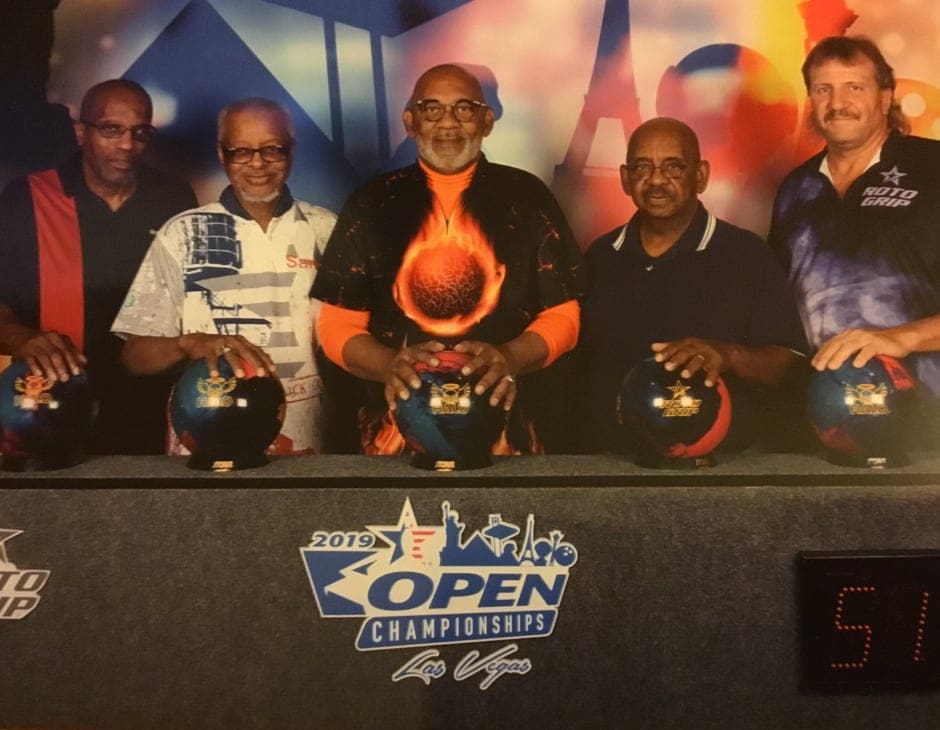Don Kyle’s father was just 56 when he died from cancer. He thinks about that—a lot.
“As an African-American male, I know that my father had a reluctance to go to doctors,” Kyle says. “I don’t know why, our family had good healthcare. I know it’s something that is endemic in the African- American community. Some of it is economically generated, I’m sure, but I don’t understand the dynamic that makes many men believe it’s a weakness to see a doctor. Whether it’s an issue of pride or something else, I don’t know. I just know there’s an aversion and I would like to do whatever I can to dispel that aversion, or at least that reluctance to see a doctor.”
Kyle’s positive attitude toward regular health checks has saved his life—twice. Although he admits his wife, Doris, a retired respiratory therapist, has offered an encouraging nudge when needed.
An Unexpected Cancer Diagnosis
It was a routine health check with his primary care physician that revealed Kyle had a kidney stone. “I didn’t know I had a stone; I wasn’t experiencing any pain,” he recalls. Still, his doctor referred him to Dr. Keith Waguespack, a board-certified urologist and surgeon with Urology Partners of North Texas.
“By the time I saw Dr. Waguespack, I had already passed the kidney stone, but he noticed a mass on my right kidney,” Kyle adds.
The Mass Was Cancerous
“When I heard cancer, I was shocked,” he remembers. “I hadn’t experienced any symptoms. At that point, I was 57 and had outlived my father.”
Kyle found comfort in Dr. Waguespack’s calm, straight-forward demeanor. “I’m an engineer. I was looking for facts that I could put in a spread sheet and evaluate,” he admits. “Hearing him explain, ‘This is the situation, this is what you have, these are the options, and this is what we can expect,’ was very reassuring. I’ve had other doctors who were more emotionally touchy feely, and sometimes I wondered if they were being absolutely truthful.”
Life with One Kidney
The tumor needed to be surgically removed, but appeared to be enmeshed with blood vessels in the kidney. “Dr. Waguespack let me know that he may have to take the kidney if the tumor was in a place where he couldn’t remove it.”
Dr. Waguespack performed a robotic laparoscopic radical nephrectomy to remove Kyle’s kidney. Because the procedure only required small incisions, his recovery went smoothly.
“The rehab was pretty uneventful,” he says. “I was off work for a week or so. I had a desk job at Raytheon at the time, so I was able to work from home and go to the office some. I was very active in bowling and was in a lot of leagues and bowling in tournaments, so that was the main thing I was concerned about. How long would I have to miss bowling? It was about four weeks before I was cleared to hold a bowling ball.”
Kyle finds life with one kidney pretty normal. “There’s virtually no change in my life. I’m not a drinker so that was never an issue, but I do have to monitor my sugar intake. In terms of living my life, nothing’s changed.”
The “C” Word Strikes Again
Following his surgery, Kyle had regular follow-up appointments with Dr. Waguespack every three months.
“At one of his follow-up appointments, Mr. Kyle complained about frequent urination,” says Dr. Waguespack. “After prescribing medications to attempt to alleviate the symptoms, I ultimately recommended an office cystoscopy procedure to view the inside of his bladder in order to rule out a relatively rare cause of overactive bladder—carcinoma in situ (CIS).
While bladder cancers are generally diagnosed when an individual notices blood in their urine, that wasn’t the case with Kyle. “Again, just like with my kidney cancer, I hadn’t experienced any classic warning symptoms,” he says. “Dr. Waguespack wasn’t happy. He’s hyper vigilant with me. He’s told me a couple of times that I’m a special case for him because of kidney and bladder cancer.”
Dr. Waguespack prescribed intravesical immunotherapy, a treatment designed to trigger the immune system into attacking bladder cancer cells. During six weekly treatments, the drug Bacillus Calmetta-Guerin (BCG)—shown to be especially effective in treating CIS—was inserted directly into Kyle’s bladder via a catheter.
While Kyle expected temporary nausea and fatigue to kick in after his treatment, he didn’t expect the onset of a high fever. “I had to go to the emergency room and Dr. Waguespack met me there.”
“We needed to address an extremely rare, but life-threatening complication of his treatment—BCG sepsis,” Dr. Waguespack explains. “Fortunately, his fever dissipated quickly, and we ultimately determined that he was simply hypersensitive to BCG.”
Kyle spent two days in the hospital. Afterward, his BCG dosage was adjusted. “It took two or three treatments to determine a dosage that would be effective without the negative side effects,” says Kyle.
After his initial six-week treatment cycle, Kyle was able to take four weeks off. A follow-up cystoscopy scan of the bladder determined when the next round of immunotherapy would begin. Kyle appreciated Dr. Waguespack carefully coordinating his treatments so he would only miss one day of work during treatment weeks.
Now retired, Kyle still receives BCG treatment, but the length of each round is shorter. “Now I do a round in three-week intervals and take six weeks off before undergoing a cystoscopy. Based on the results of the cystoscopy, Dr. Waguespack determines when my next round of BCG treatments will begin or if biopsies need to be taken.”
“Kyle’s three-week maintenance treatments basically every six months are standard maintenance protocols for BCG treatment,” confirms Dr. Waguespack.
Along with amazing care from Dr. Waguespack, Kyle credits the staff members who have administered his treatments over the years—Almeisha Tisby, Erica Moore, and Aracely Medina—for their professionalism and excellent bedside manner. “It’s an intrusive process,” he explains. “They’re inserting a catheter, so I have to have a certain level of comfort with them. All three of them have shown a genuine care for me and my health. I feel such a bond with them. The fact that they seem to care about me has meant a whole lot.”
The Appreciation Is Mutual
“Mr. Kyle has been a pleasure to treat over the last 10 years,” says Dr. Waguespack. “He and his wife are always so pleasant, even in the face of difficult medical circumstances. He seems very appreciative of the care he receives and does everything we ask him to do—and believe me, we have put him through many unpleasant procedures. He is a model patient and a great guy. Over the years, my staff builds special bonds with certain patients and looks forward to seeing these patients during follow up. Mr. Kyle is at the top of that list.”

The New Normal
Kyle marvels at how normal his life is despite his two battles with cancer. “In between treatment you wouldn’t know I have health issues. Most people don’t know. I don’t have any dramatic lifestyle changes. I still do everything I’ve done in the past. I still bowl—not as well—but I attribute that to being old. I used to be a pretty good bowler, now I’m just a bowler,” he jokes.
Despite his sense of humor, Kyle knows he is fortunate to have a loving wife who has been by his side every step of the way. He also is grateful for his faith and the strong support he receives from his church family at Christ Universal Church. “The church and Reverend Derrick Wells have been instrumental in reinforcing my relationship with God,” he says.
Of course, Kyle’s father is never far from his thoughts. “The fact that I have lived longer than my father has made me think. I’m sure if he’d had access to the kind of medical care I have access to, his life would have been extended a lot longer. I feel very, very fortunate. I’m living a full life, enjoying my life, and I absolutely thank Dr. Waguespack for that. He’s been wonderful.”
Have you been diagnosed with bladder or kidney cancer?
The caring and experienced physicians at Urology Partners are here to help. Call 866-367-8768 or schedule an online appointment.
Read Also: Kidney Stone Was Life-Threatening


